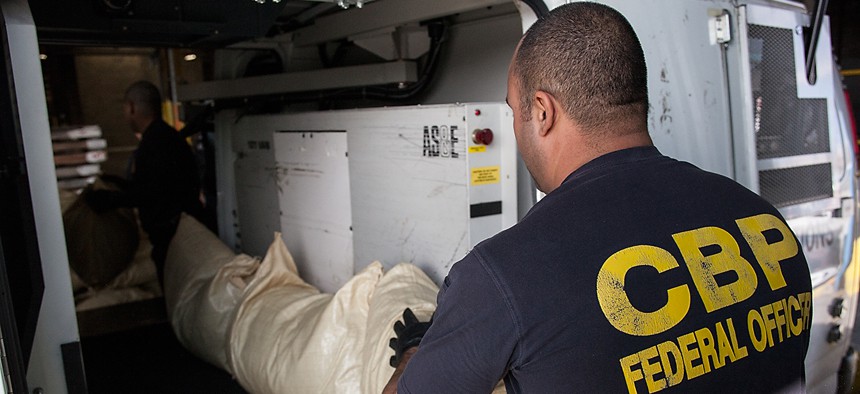Border Agents Seized Goods Tied To Forced Labor For The First Time Since 2001
The agency said it had information “indicating that the Tangshan Sanyou Group and its subsidiaries utilize convict labor in the production of the merchandise.”
Border agents seized a shipment of soda ash from China today, alleging that it was produced by forced prison labor.
U.S. Customs and Border Patrol issued an order to seize any material produced by the Tangshan Sanyou Group, a Chinese corporation. The agency said it had information “indicating that the Tangshan Sanyou Group and its subsidiaries utilize convict labor in the production of the merchandise,” but the agency has not yet said how it obtained that information.
The seizure marks the first time since 2001 that U.S. Customs has impounded goods connected to forced labor. They were able to act because president Barack Obama signed a law in January that removed a loophole which made it almost impossible to enforce laws against the importation of goods made with forced labor or by children.
This loophole allowed goods made with forced labor into the US if it they met “consumptive demand,” an ill-defined category that became an excuse for inaction, since almost any imported good is intended to meet US demand.
“Human rights groups and labor groups don’t even bother petitioning to have a detention order issued for a shipment because they know that customs won’t even investigate if it’s an item like cocoa or shrimp,” John Sifton, a Human Rights Watch official focused on Asia, told Quartz last year. “As a result, [Immigrations and Customs Enforcement] doesn’t do this stuff anymore.”
When President Obama pushed a bill last year to give him the authority to negotiate the Trans-Pacific Partnership, a trade deal involving the US and 12 partners, Senators Ron Wyden and Sherrod Brown inserted language in a partner bill to close the forced labor loophole. The language was inserted over the objections of industries that import seafood, cocoa and other commodities from countries with low labor standards.
Though the TPP itself has been signed, it remains an open controversy and requires a vote by Congress to come into effect. But the closure of the forced labor loophole appears to have had an immediate affect.
Soda ash, or sodium carbonate, is a chemical precursor used in dyes, soaps, preservatives and, most of all, glass-making. While it can be mined in the U.S. and elsewhere, it’s also made from the ashes of burnt seaweed and through several synthetic processes. China’s state-owned chemical industry is ramping up its production of synthetic soda ash to the point where some industry observers fear a collapse in prices.
The use of prisoners to make goods for export has long been a problem for China’s efforts to integrate itself into global markets. The government announced in 2013 that it was closing its forced labor re-education camps. But experts say that it isn’t clear that forced labor has been eliminated.
Meanwhile, US soda ash producers are bullish about their ability to increase exports if the TPP is passed.

NEXT STORY: The Apple-FBI Showdown Is Over




